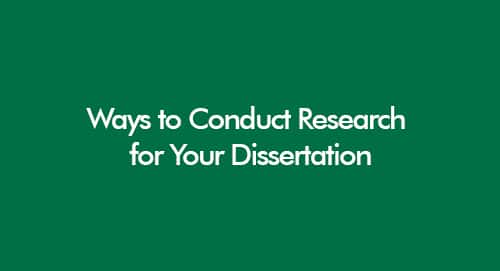
How to Write Email to a Teacher: The Impact of Positive Teacher-Student Connections
October 26, 2022
How to Write Research Methodology Section in Academic Writing? A Comprehensive Guide
October 26, 2022A review paper is a type of academic article that provides a comprehensive overview, analysis, and synthesis of existing research literature on a specific topic or research area. It aims to summarize and evaluate the existing studies, identify key themes or trends, highlight gaps in knowledge, and offer critical insights or recommendations for future research.
Explore More on Dissertation Topics Here
Discover New Dissertation Examples Here
Review papers are often published in scholarly journals and serve as valuable resources for researchers, helping them stay updated on their field's current state of knowledge. The following guideline will elaborate on how to write a review paper like a pro:
What is the Importance of a Review Paper?
Review papers play a crucial role in academic research for several reasons:
1- Summarizing Existing Knowledge
Review papers comprehensively summarise existing research on a specific topic or research area. They help researchers and scholars understand the current state of knowledge, including key theories, methodologies, findings, and debates.
2- Identifying Gaps and Challenges
Review papers help identify gaps, limitations, or inconsistencies in existing research. By analyzing and synthesizing multiple studies, review papers can highlight areas where further research is needed, unresolved questions, or conflicting findings, thus guiding future research directions.
3- Synthesizing and Integrating Findings
Review papers go beyond simply summarizing individual studies. They analyze and synthesize multiple sources of evidence to derive overarching conclusions, patterns, or trends. This synthesis of information helps create a more comprehensive understanding of a topic and can lead to new insights or perspectives.
4- Informing Evidence-Based Decision-Making
Review papers are valuable resources for policymakers, practitioners, and professionals in various fields. Review papers help inform decision-making processes, policy development, and practice guidelines by presenting a balanced and evidence-based overview of a topic.
5- Saving Time and Effort
The research literature is vast and continuously expanding. Review papers condense and organize a substantial body of research into a single document, saving time and effort for researchers who want to familiarize themselves with a particular field or topic.
6- Establishing Scholarly Authority
Publishing a well-crafted review paper can enhance a researcher's reputation and credibility within their field. Review papers demonstrate the researcher's expertise and ability to critically analyze literature and provide valuable insights to the academic community.
Discover Our Amazing Services of Report Writing Here
In summary, review papers are important because they provide a comprehensive synthesis of existing research, identify gaps and challenges, offer insights and recommendations, inform decision-making, and contribute to the advancement of knowledge within a specific field or research area.
Types of Review Articles
Review papers come in various forms, each with its own distinct approach and purpose. Let's explore the three main types of review articles:
1. Systematic Review
Systematic reviews aim to provide a comprehensive and unbiased summary of existing research literature on a specific topic. They follow a meticulous, structured methodology to identify, select, and evaluate relevant studies. Systematic reviews typically involve a predefined research question, explicit inclusion and exclusion criteria, and a rigorous data extraction and analysis process. By minimizing bias and subjectivity, systematic reviews strive to provide the highest level of evidence available. They often include a meta-analysis, a statistical analysis combining data from multiple studies to derive quantitative conclusions.
2. Narrative Review
Narrative reviews, also known as traditional or integrative reviews, offer a qualitative and interpretive overview of the existing literature. Unlike systematic reviews, narrative reviews do not adhere to a strict methodological framework. Instead, they rely on the author's expertise and interpretation of the literature to present a cohesive narrative. Narrative reviews may discuss key concepts, theories, methodologies, and trends in the field, highlighting the main findings and debates. While narrative reviews are valuable for providing a broad understanding of a topic, they are more prone to subjectivity and potential bias.
3. Meta-Analysis
Meta-analysis is a specific type of systematic review that focuses on quantitative data analysis. It involves the statistical synthesis of results from multiple studies, combining their effect sizes to estimate the treatment effect. Meta-analysis aims to increase statistical power and precision by pooling data from various sources. It allows researchers to draw more robust conclusions and identify patterns or relationships that may not be evident in individual studies alone. Meta-analyses require a clear research question, rigorous inclusion criteria, and appropriate statistical techniques to ensure the validity and reliability of the findings.
Learn How to Write an Expert Literature Review
Each type of review article serves a distinct purpose and has its own set of requirements. Systematic reviews provide comprehensive and evidence-based summaries, narrative reviews offer interpretive insights and broader perspectives, and meta-analyses focus on quantitative synthesis. The choice of the review type depends on the research question, available literature, and the specific goals of the review.
Finding a Good Topic for a Review Paper
Finding a good topic for a review paper requires careful consideration and exploration. Here are some steps you can follow to identify a suitable and engaging topic:
1- Identify Your Area of Interest
Start by reflecting on your field of study or the subject area that interests you the most. Consider topics that align with your expertise, passion, or career aspirations. Choosing a topic that you find personally engaging is essential, as it will motivate you throughout the review paper writing process.
2- Review Recent Literature
Familiarize yourself with the current literature in your field. Read recent research articles, review papers, and relevant scholarly publications to gain insights into the latest advancements, trends, and gaps in knowledge. Look for emerging areas of research, unresolved questions, or controversies that could be potential topics for your review paper.
3-Consult with Experts
Seek guidance from professors, mentors, or experts in your field. Discuss your interests and ideas with them, and ask for their recommendations or suggestions for review paper topics. Their expertise and experience can help you identify niche areas or specific research questions that have not been extensively covered in the existing literature.
4- Narrow Down Your Focus
Once you have identified a general topic, narrow it down to a specific research question or subtopic. A focused and well-defined research question will make your review paper more manageable and enable you to delve deeper into the selected area. Consider your chosen topic's scope, relevance, and feasibility, ensuring that it is neither too broad nor too narrow.
5-Conduct Preliminary Literature Search
Conduct a preliminary literature search using academic databases, online libraries, and search engines. This will help you gauge the availability of relevant literature on your chosen topic. Pay attention to the quantity and quality of existing research articles, as this will influence the comprehensiveness of your review.
6-Evaluate the Significance and Relevance
Assess the significance and relevance of your chosen topic. Ask yourself why it is important to review this particular area of research. Consider its potential contributions to the field, its implications for theory or practice, or its relevance to current issues or debates. A good review paper topic should have a clear rationale and offer value to the scholarly community.
7- Refine and Finalize Your Topic
Based on your evaluation and considerations, refine and finalise your topic. Ensure that your topic is specific, focused, and researchable. It should offer enough depth and breadth for a comprehensive literature review while being feasible within the available resources and time constraints.
Choosing a good topic for your review paper is essential as it sets the foundation for your entire study. Take the time to explore various options, seek input from experts, and select a topic that aligns with your interests, expertise, and the current research landscape.
Doing Effective Research for Your Review Paper
The following tips can help you in finding an effective review paper:
1- Define Your Research Objectives
Clearly define the research objectives and questions you aim to address in your review paper. This will help guide your research process and focus your efforts on finding relevant and reliable sources.
2- Identify Key Search Terms
Develop a list of key search terms related to your topic. These terms should capture your research question's main concepts and keywords. Use a combination of broader and more specific terms to refine your search results.
3- Utilize Academic Databases
Access reputable academic databases such as PubMed, Google Scholar, Scopus, or Web of Science. These databases provide access to a wide range of scholarly articles, journals, conference papers, and other research publications. Use advanced search options and filters to narrow down your results based on publication date, study design, or specific keywords.
4- Conduct a Systematic Literature Search
Perform a systematic and comprehensive literature search using your identified search terms. Scan the titles and abstracts of the search results to determine their relevance to your research topic. Save relevant articles for further evaluation.
5- Evaluate the Quality of Sources
Assess the quality and credibility of the sources you have gathered. Look for peer-reviewed articles from reputable journals, books from respected publishers, and scholarly publications from trusted institutions. Consider the author's expertise, the publication's reputation, and the rigour of the research methodology.
6- Read and Annotate Relevant Articles
Read the selected articles carefully, taking notes and highlighting key points, methodologies, findings, and arguments. Organize your notes according to themes or subtopics to facilitate the writing process. This will help you identify important findings, patterns, or gaps in the literature.
7- Follow Citation Trails
Pay attention to the reference lists of the articles you find relevant. Explore these references to identify additional sources that could be valuable for your review. This method, known as citation chasing, can help you discover seminal works or influential authors in your field.
8- Consider Alternative Sources
In addition to academic articles, consider including other sources such as government reports, conference proceedings, industry publications, or grey literature. These sources can provide valuable insights, practical examples, or alternative perspectives on your topic.
9- Stay Updated
Research is ongoing, and new studies are published regularly. Set up alerts or subscribe to relevant journals to stay informed about the latest research in your field. This will ensure that your review paper incorporates the most up-to-date findings and contributes to the current knowledge landscape.
10- Organize Your References
Keep track of your reviewed sources using reference management tools such as Zotero, Mendeley, or EndNote. These tools help you manage and format your references, ensuring accuracy and consistency in your citations and bibliography.
11- Analyze and Synthesize the Literature
Analyze the information gathered from your research and synthesize the key findings, themes, and arguments. Identify commonalities, discrepancies, or gaps in the literature and present a coherent and balanced overview in your review paper.
12- Maintain Academic Integrity
Remember to appropriately cite and reference all sources used in your review paper. Avoid plagiarism by accurately paraphrasing or quoting when necessary. Adhere to the ethical guidelines and citation styles specified by your field or academic institution.
Find Examples of Report Writing Here
By following these steps, you can conduct effective research for your review paper and gather relevant and high-quality sources to support your analysis and arguments. Thorough and comprehensive research will contribute to the credibility and validity of your review paper, ensuring its value to the scholarly community.
How to Structure Your Review Paper?
Writing a review paper involves synthesizing and critically analyzing existing literature on a specific topic. Here is a step-by-step guide to help you write an effective review paper:
1- Understand the Purpose
Clarify the purpose of your review paper. Are you providing an overview of the current state of research, identifying gaps, presenting different perspectives, or offering a critical evaluation? Clearly defining your objective will guide your writing process.
2- Select a Focused Topic
Choose a specific topic within your field of study that is relevant and interesting. Narrow down your focus to ensure that your review paper is manageable and can be adequately covered within the length constraints.
3- Conduct a Comprehensive Literature Review
Conduct a thorough literature search using academic databases, libraries, and other relevant sources. Collect a wide range of scholarly articles, books, and other resources that pertain to your topic. Evaluate the quality and relevance of each source.
4- Organize Your Sources
Create a system to organize your sources, such as using reference management software or creating annotated bibliographies. This will help you keep track of your sources and facilitate the citation process.
5- Develop an Outline
Create a clear and logical outline for your review paper. Start with an introduction that sets the context and presents the focus of your review. Identify key themes or subtopics and organize your sources accordingly. Consider the flow of information and ensure smooth transitions between sections.
6- Write the Introduction
Begin your review paper with an engaging introduction that captures the reader's attention. Clearly state the objective of your review and provide an overview of the topic and its importance. End the introduction with a clear thesis statement that guides the rest of your paper.
7- Organize the Main Body
Divide the main body of your review paper into sections based on the identified themes or subtopics. Within each section, summarise the main findings, theories, or perspectives related to that theme. Critically analyze and compare the different sources, highlighting their strengths, weaknesses, and gaps in the literature.
8- Synthesize the Information
Synthesize the information from different sources to identify patterns, trends, or conflicting viewpoints. Discuss the implications and significance of the findings and how they contribute to the existing body of knowledge. Aim for a balanced presentation by acknowledging different perspectives.
9- Include Your Critical Analysis
Offer your own critical analysis and evaluation of the literature. Discuss the limitations or shortcomings of the studies reviewed and suggest areas for further research. Support your analysis with evidence from the sources you have reviewed.
10- Write a Conclusion
Summarize your review paper's main findings and arguments. Emphasize the contributions of the reviewed literature to the field and restate the significance of your topic. End with a thought-provoking statement or suggestion for future research.
11- Revise and Edit
Review your draft thoroughly, paying attention to clarity, coherence, and flow. Ensure that your writing is concise and free of grammatical and spelling errors. Consider seeking feedback from peers or mentors to improve the quality of your review paper.
12- Format and Cite Your Sources
Follow the specific formatting guidelines provided by your target journal or academic institution. Use the appropriate citation style (e.g., APA, MLA) to cite your sources accurately and consistently throughout the paper. Create a comprehensive bibliography or reference list.
Remember, a review paper should provide an objective and well-informed analysis of the existing literature. It should demonstrate your understanding of the topic, highlight important contributions, and offer insights for further research.
Common Mistakes to Avoid in a Review Paper
The following top tips will help you in writing a great review paper:
1- Read the paper thoroughly before starting the review.
2- Understand the paper's purpose and the journal's target audience.
3- Familiarize yourself with the journal's review process.
4- Write in a clear, concise, and objective manner.
5- Critique the paper itself rather than criticise the authors.
6- Support your criticisms with specific examples from the paper.
7-Focus on the paper's strengths and weaknesses.
8- Provide suggestions for improving the paper.
9- Be constructive in your feedback.
10- Adhere to the journal's guidelines regarding the length and format of your review.
Conclusion
In order to be a great researcher, you must know how to write a review paper. Review papers are academic papers that consolidate knowledge, highlight gaps in the current research, and set future directions for research.
Although writing a review paper may seem daunting at first, Premier Dissertation can help you every step of the way. We have a team of experts who have written review papers and understand the process from start to finish. Contact us today to get started on your journey to writing a great review paper!
To learn more about how to write a review paper, explore the following topics
- Learn How to Write Review Article: A Comprehensive Guide with Examples
- Literature Review: A Detailed Student Guide on How to Write a Literature Review
- How to Write a Dissertation Literature Review?
Contact Premier Dissertations to help craft the perfect conclusion paragraph for your next academic paper.
Get 3+ Free Dissertation Topics within 24 hours?



























